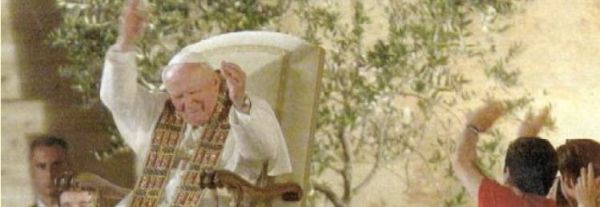Hearing the word "alms", your sensibility as young lovers of justice, eager for an equal distribution of riches, might feel wounded and offended. It seems to me I can feel it. On the other hand, do not think you are alone in having such an interior reaction; it is in harmony with the innate hunger and thirst for justice that everyone brings with him. Also the prophets of the Old Testament, when they call the People of Israel to conversion and to the true religion, indicate the redress of injustices, suffered by the weak and defenceless, as the main way for the restoration of a genuine relationship with God (cf. Is 58:6-7).
Yet the practice of almsdeeds is recommended in the whole sacred Text, both in the Old and in the New Testament: from the Pentateuch to the Sapiential Books, from the book of Acts to the Apostolic Letters. Well, through a study of the semantic evolution of the word, on which less genuine incrustations have been formed, we must find again the real meaning of alms and, above all, the determination and the joy of almsdeeds.
A Greek word, alms etymologically means compassion and mercy. Various circumstances and influences of a reductive mentality have distorted and deconsecrated its original meaning sometimes reducing it to that of a spiritless and loveless act.
But alms, in itself, must be understood essentially as the attitude of a man who perceives the need of others, who wishes to share his own property with others. Who will say that there will not always be another, in need of help—spiritual in the first place—support, comfort, brotherhood and love? The world is always too poor in love.
Thus defined, to give alms is an act of very high positive value, the goodness of which must not bei doubted, and which must find in us a fundamental readiness of heart and spirit, without which there is no real conversion to God.
Even if we do not have at our disposal riches and concrete capacities to meet the needs of our neighbour, we cannot feel dispensed from opening our heart to his necessities and relieving them as far as possible. Remember the widow's mite; she threw into the treasury of the temple only two small coins but with them all her great love: "for she out of her poverty had put in all the living that she had" (Lk 21:4).
[Pope John Paul II, Address to the young people 28 March 1979]












